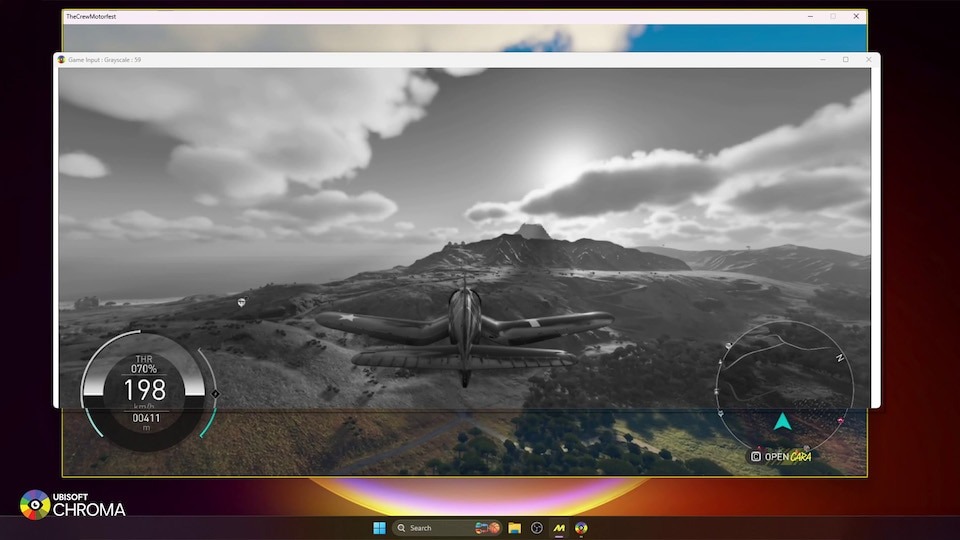Ubisoft just shared its Chroma tool with the public to improve the accessibility of video games. Chroma is a colorblind simulation tool that allows developers to optimize games for color blindness.
The open-source tool applies a filter over the game screen so developers can check how content will appear to people with different types of color blindness.
Ubisoft has worked on Chroma since 2021. Since its early days, Chroma has gained support for dual screens and hotkeys.
“Over the past few years, Chroma has proven to be a highly efficient tool for us at Ubisoft,” said David Tisserand, Director of Accessibility.
“It has allowed us to assess the accessibility of our games for colorblind players much faster and more comprehensively than ever before. Because we believe accessibility is a journey, not a race, we’re thrilled to share Chroma with the entire industry. We invite everyone to benefit from it, provide feedback, and contribute to its future development.”
Chroma can simulate the three major types of color blindness: Protanopia, Deuteranopia and Tritanopia. With the tool, developers can test and optimize games to ensure content is accessible.
The GitHub page for Chroma outlines the main benefits of the tool:
- Color Simulation on single monitor. This solution works on top of [games] and can be maximized as per requirement.
- [Works] on all games. No dependency on any specific game or engine.
- High performance. Able to simulation live gameplay up to 60 FPS.
- Accurate results.
- Simulation of all type of color blind forms.
- Only available solution which capture screen live gameplay screen and simulate.
- Easy screenshot to log error.
- Easy and configurable UI.
“Chroma was created with a clear purpose—making color blindness accessibility a natural part of the creative and testing process,” said Ubisoft’s QC Product Manager Jawad Shakil.
Accessibility is crucial when it comes to gaming. Over the years we’ve seen several innovations that make gaming more accessible, such as the Xbox Adaptive Controller.
Earlier this year, team Xbox joined forces with EA, Google, Nintendo of America, Ubisoft, and other gaming companies by joining the Accessible Games Initiative.





